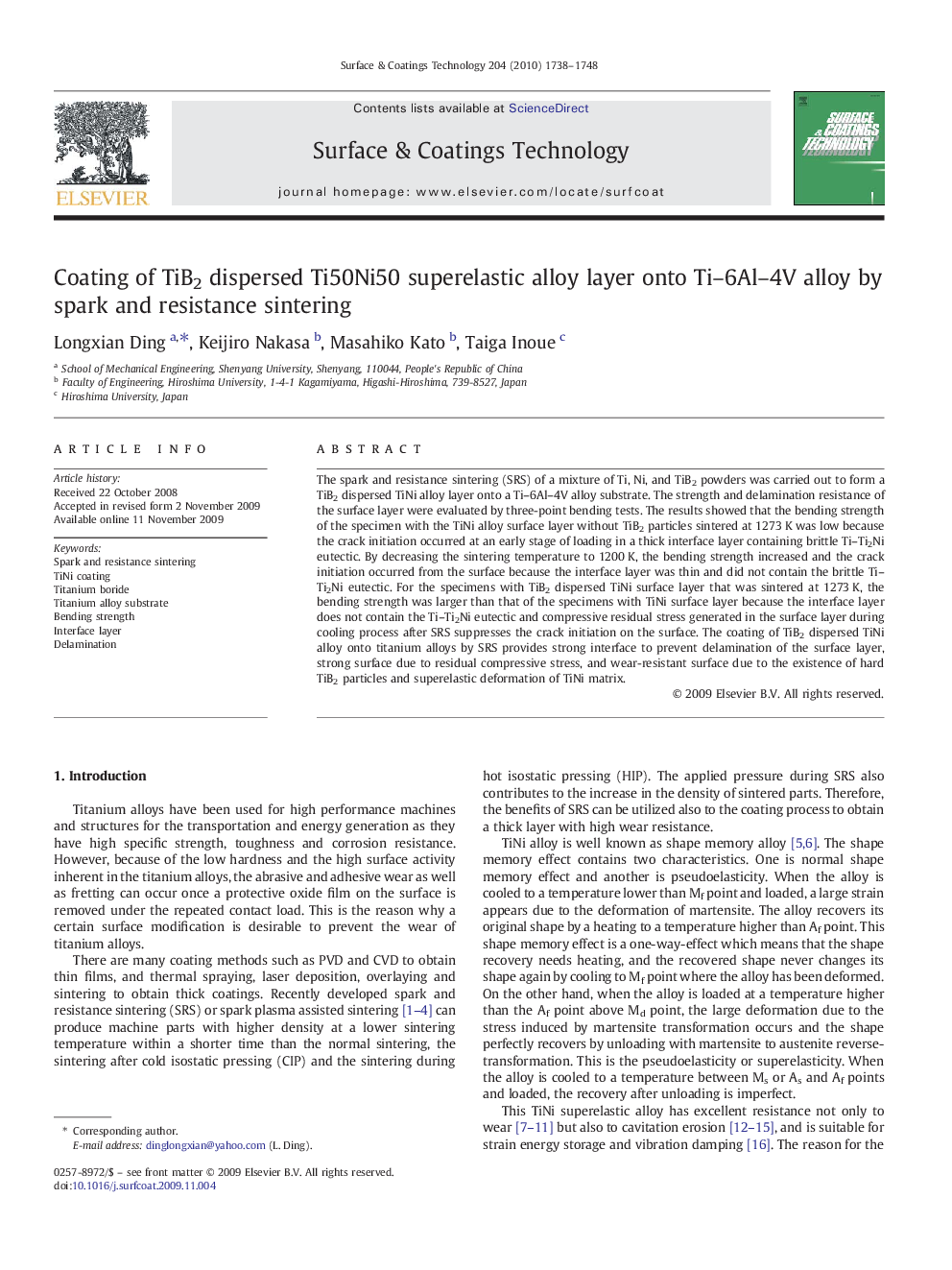| کد مقاله | کد نشریه | سال انتشار | مقاله انگلیسی | نسخه تمام متن |
|---|---|---|---|---|
| 1659536 | 1008383 | 2010 | 11 صفحه PDF | دانلود رایگان |

The spark and resistance sintering (SRS) of a mixture of Ti, Ni, and TiB2 powders was carried out to form a TiB2 dispersed TiNi alloy layer onto a Ti–6Al–4V alloy substrate. The strength and delamination resistance of the surface layer were evaluated by three-point bending tests. The results showed that the bending strength of the specimen with the TiNi alloy surface layer without TiB2 particles sintered at 1273 K was low because the crack initiation occurred at an early stage of loading in a thick interface layer containing brittle Ti–Ti2Ni eutectic. By decreasing the sintering temperature to 1200 K, the bending strength increased and the crack initiation occurred from the surface because the interface layer was thin and did not contain the brittle Ti–Ti2Ni eutectic. For the specimens with TiB2 dispersed TiNi surface layer that was sintered at 1273 K, the bending strength was larger than that of the specimens with TiNi surface layer because the interface layer does not contain the Ti–Ti2Ni eutectic and compressive residual stress generated in the surface layer during cooling process after SRS suppresses the crack initiation on the surface. The coating of TiB2 dispersed TiNi alloy onto titanium alloys by SRS provides strong interface to prevent delamination of the surface layer, strong surface due to residual compressive stress, and wear-resistant surface due to the existence of hard TiB2 particles and superelastic deformation of TiNi matrix.
Journal: Surface and Coatings Technology - Volume 204, Issue 11, 25 February 2010, Pages 1738–1748